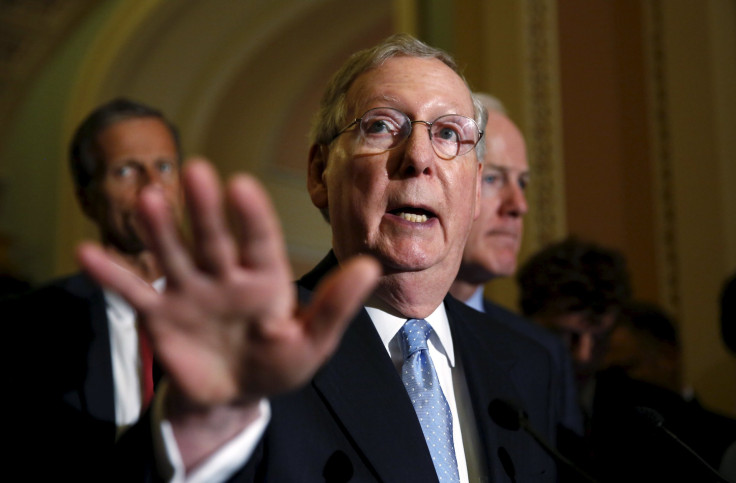Rushing Ahead of Trump Impeachment, Senate Republicans Confirm 8 Judicial Nominees in Just 3 Days

Senate Republicans confirmed eight district court nominees in just three days this week, drawing protests from the Democrats. With House Speaker Nancy Pelosi (D-NY) announcing her intent to begin drafting articles of impeachment against President Donald Trump, Republicans are feeling the pressure to move forward on judicial nominations as quickly as possible.
Senate Democrats have criticized the haste in procedure as well as the individuals being appointed to district courts by Trump, the Hill reported. Sen. Christopher Coons (D-Del.) said he has concerns about “rising issues around qualification and competence.” Speaking on the floor, Coons pointed out that nine of Trump’s recent appointees were ranked as “not qualified” by the American Bar Association.
Sen. Schumer expressed worry about the political leanings of the nominees. “They are putting right-wing on the bench. These judges are far away from where the average American is,” he said. Referring to the confirmation of Sarah Pitlyk, Schumer said, “there are many bad nominations, but it's hard to think of one that's as bad as hers.” Pitlyk was among those rated “not qualified.” Sen. Susan Collins (R-Maine) was the only Republican to vote against her confirmation.
Pitlyk has been especially controversial for her outspoken views on abortion, fertility treatments and surrogacy. She notably defended Iowa’s statewide ban on six-week abortion, which has since been struck down by the U.S. Supreme Court. Pitlyk has also argued that surrogacy “is harmful to mothers and children, so it’s a practice society should not be enforcing.”
Senate Majority Leader Mitch McConnell (R.-Ky.) responded to critics: “If our Democratic colleagues want to spend less time voting on district judges, they should take it up with the Democratic leader,” referring to Sen. Chuck Schumer (D-NY).
Senate Republicans had earlier pushed a rule change to reduce the time for debating the confirmation of judicial nominees from 30 hours to two hours. This helped Republicans swiftly move ahead on the nominees put forth by Trump this week.
Although polling of American voters showed slightly higher approval of impeachment, most experts believe it is unlikely that Trump will be removed. While the articles of impeachment are expected to pass through the House, the Republican-dominated Senate is expected to vote against convicting the president.
In the event Trump survives the looming impeachment process, Republicans in Congress can expect increased political opposition from Democrats.
© Copyright IBTimes 2024. All rights reserved.






















